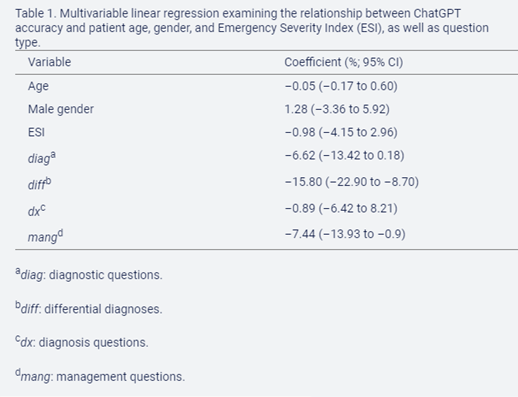USAmaximumnot for profitmedical organizationOne of them, Brigham Hospital in Massachusetts, recently released a report on theChatGPTA research paper on the use of ChatGPT in clinical healthcare decision making. The study showed that ChatGPT had an astounding 71.71 TP3T accuracy in overall clinical decision making.
The researchers went through a meticulous evaluation that covered everything from proposing a diagnosis and recommending diagnostic tests to final diagnosis and care management decisions. Notably, ChatGPT performed well in the final diagnosis task, with an accuracy of 76.91 TP3T.This finding is a landmark for the use of natural language processing models in healthcare decision making.
The paper states that ChatGPT demonstrated significant clinical decision-making ability with an overall accuracy of 71.71 TP3T across all 36 clinical test questions. Particularly noteworthy was the accuracy of 60.31 TP3T in primary differential diagnosis, while in final diagnosis it achieved aHighestThe accuracy of the
The study used test data from the Merck Manual, one of the world's oldest and most widely used medical references containing detailed medical information.ChatGPT simulates all aspects of the clinical workflow, including differential diagnosis, diagnostic testing, final diagnosis, and clinical management, through sequential questioning.

It is worth noting that ChatGPT performs equally well in primary care and acute care settings, providing robust decision support to healthcare teams. However, for numerical accuracy such as drug dosage, ChatGPT currently has some challenges that need to be further optimized in future studies.
This study provides strong evidence for the use of ChatGPT in clinical medical decision making, demonstrating its great potential in the medical field. As the model acquires more usable clinical information, its performance in medical decision making will be further enhanced.